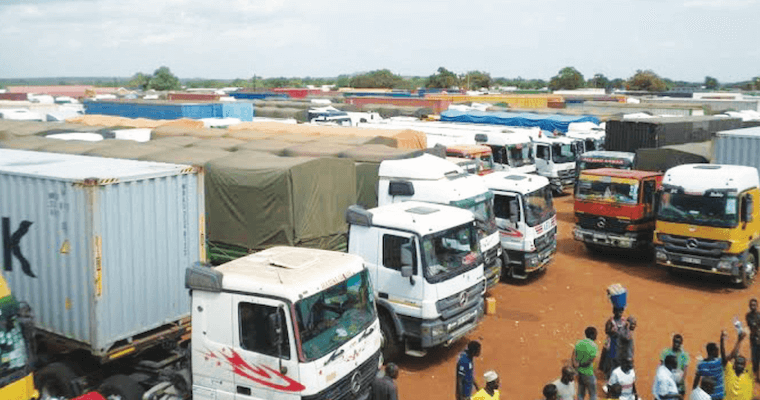
Our Projects are
Transforming African Trade
Quick Contacts
2nd Floor, Fidelity Insurance Centre Waiyaki Way, Westlands

In a partnership spanning 13 years, the British High Commission and TradeMark Africa (TMA) have achieved significant milestones in reducing trade barriers for Uganda and its neighbouring countries, demonstrating why such collaborations matter, the two bodies announced recently.
At a recent gathering, which was attended by notable figures including UK trade commissioner for Africa John Humphrey, Ambassador Kate Airey, the British high commissioner to Uganda, and TMA chief executive officer David Beer, highlighted their achievements since 2010. They said their work has led to substantial reductions in both the cost and time required for cross-border trade, benefiting Ugandan businesses and fostering regional economic growth.
They pointed out the remarkable reduction in container transit time from Mombasa to Kampala, which dropped by a third between 2017 and 2021. General Katumba Wamala, Uganda’s minister of Works and Transport, expressed gratitude for the support received in various trade facilitation facets, including the construction and operation of One-stop border posts, road upgrades, the development of electronic cargo tracking systems, and support for farmers and traders in the grain sector.
These interventions have not only reduced the cost and time of cross- border trading but have also introduced automated systems, minimized losses, and improved the economic fortunes of the region’s residents. The partnership extends beyond the UK, with significant contributions from development partners such as the European Union, Canada, Denmark, Finland, USAID and the Netherlands.
These partners have bolstered trade facilitation in areas such as customs systems modernization, trade automation systems, harmonization of standards, and capacity building for women in trade.
Airey emphasized the importance of facilitating trade for Uganda’s growth, job creation, and poverty reduction. The investments in IT systems for trade, such as integrated border management, electronic cargo tracking systems, and single electronic window platforms, have streamlined trade processes, making it quicker and easier to move goods in and out of Uganda.
Also, improvements in trade infrastructure like the Gulu logistics hub, funded by the EU, position Uganda as a regional logistics hub serving neighbouring markets in South Sudan and the Democratic Republic of the Congo.
The implementation of the electronic single window systems, digital portals, integrated customs management systems, regional electronic cargo tracking, and automated trade exchanges has led to an impressive 80 per cent reduction in the time and cost of obtaining permits and trade-related documentation.
Furthermore, the UK government has supported the Authorized Economic Operator (AEO) initiative, offering businesses that comply with customs regulations preferential treatment, such as expedited clearance and simplified procedures.
David Beer, the CEO of TradeMark Africa, highlighted the development and operationalization of more than 15 one- stop border posts in Uganda, leading to a remarkable average reduction of 70 per cent in crossing times. He acknowledged the generous support of development partners like the UK and emphasized the need to strengthen such partnerships, given TMA’s growing footprint in facilitating trade across Africa.
The AEO risk management system is set for rollout this year, further enhancing trade facilitation. Among other successes supported by development partners is the Uganda Electronic Single Window, funded by Denmark. This web-based facility streamlines import and export processes for trade-related agencies, significantly reducing time and transaction costs.
As of 2021, international traders witnessed a cumulative decrease of $26.4 million in transaction costs, while linked government agencies experienced a 45 per cent reduction in costs and a 79 per cent reduction in trade time, according to figures from TradeMark Africa.
The event also marked the unveiling of TMA’s new strategic plan for 2023-2030, aiming to raise Africa’s share of global exports by four per cent and increase the value of exports to the rest of the world from $500 billion to $650 billion. These ambitious goals are expected to create thousands of new jobs, boost incomes, and alleviate poverty, the officials promised.
The strategic plan aligns with a shifting focus among development partners toward priorities such as greening transport and logistics corridors, digitalization of trade systems, inclusive and sustainable trade, and the capacity building of quality standard infrastructure.
David Beer emphasized TMA’s commitment to capitalizing on digitization, new technologies, and climate-resilient trade and logistics systems to further enhance trade flows and support global efforts to decarbonize the world.
The collaborative efforts of the UK, TMA, and their development partners have significantly improved trade conditions in Uganda and the surrounding region, with a promising future of continued growth and prosperity on the horizon.
Read original article
Disclaimer: The views and opinions expressed in this article are those of the authors and do not necessarily reflect the official policy or position of TradeMark Africa.